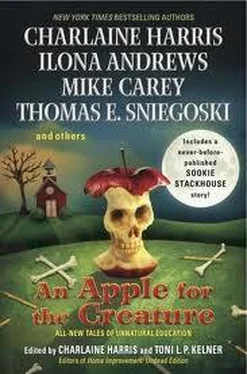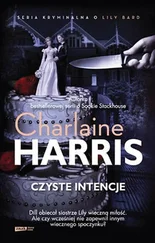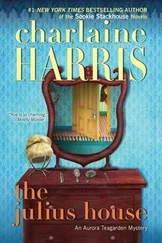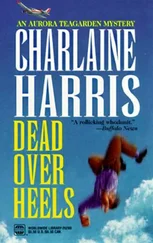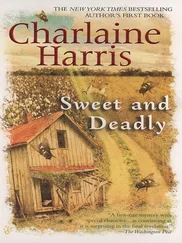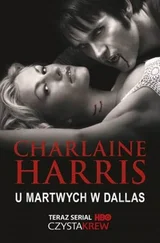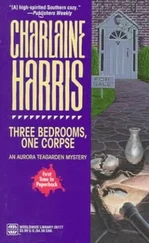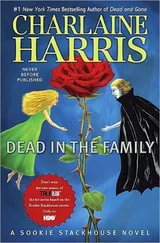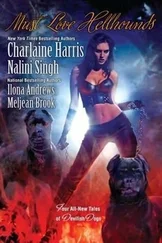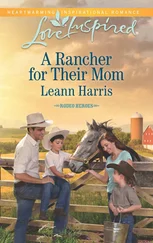Her gaze met mine. “Same as I saw in you.”
My cheeks warmed. “No use for it, except killing. That’s no life, Ruth.”
“Better life than what you were headed for.” Her fat fingers flicked through the air above the blue-eyed poppet. “Would have been in a grave. Nothing to show for living. Nothing to show those sympathetic bones.”
I looked down at my needles, spread across the table. Each one born from a hand, hands whose names I knew: Lettie, Polly, Rebecca. Mother, Grandmother, Great-Grandmother.
And now I knew the names of other bones from other hands.
All in sympathy.
—
It’d been years since Ruth had ventured off her land, but that afternoon she put on a woolen skirt and coat that moths and mice had been chewing on for a decade, pinned up her long gray hair, and buttoned her blouse until those needles hanging around her neck were hid. Not that showing them would have made folks any less uncomfortable. Ruth walking amongst the good Christians of the valley might be enough to thin the blood of that hollering preacher himself.
We were real silent until the end, just before she limped out the door, and she looked back and said, “There’s a man come to my attention. You go home now, come back tomorrow.”
“You need help?” I asked, but she raised her brow at me, made a clucking nose, and walked on out. The poppet was in a cloth bag that swung from her shoulder.
I followed her, soon after.
Ruth had a fast limp. I had to hustle to catch up. Not that I wanted to get too close, but there was some investment on my part, and so I took a different trail that was roundabout and uneven, steep—too difficult for Ruth to walk, though I myself was too fast, sliding and flirting with loose rocks underfoot, and low-lying branches that might have taken my eye or broken my nose if I hadn’t been quick to duck. All for good, though. I reached the bottom of the trail, certain I was first and Ruth, somewhere above, still huffing and puffing.
I kept to the woods, lungs tight as I forced down deep breaths of cold air, and made my way to a small log cabin settled in a clearing where a man stood on the covered porch, rocking a baby. A stone cutter, still dusty from the quarry, staring at his child like she was sunshine and angels, and so much sweetness I had to look away.
I took another breath, and walked from the woods.
“Clora,” he said, with a tired smile, kind as could be. “Been some time.”
“I’m sorry for that, Paul.” I hoped he couldn’t hear the thickness of my voice. “How’s Delphia?”
Paul glanced over his shoulder at the cabin’s closed door. “Pain’s lessened, I think. That tea you brought seemed to help her sleep. But it’s this one,” and he paused, holding his babe a little tighter, “that’s gotten fussy.”
“Etta,” I murmured, peering into blue eyes that were just like her father’s.
“Oh, but it’s nothing,” said Paul, just as gently, and kissed her brow. “I’m just glad I’m fit to care for her. What with . . .”
He stopped. I looked away again, toward the woods. His wife was dying, eaten up by scirrhus in her breasts. No stitch could cure her of those tumors. Maybe, if caught early. But not by the time I heard. Not for nothing did I think it fair the needle could kill or control, but when it came to healing a mother, all that power was to no account.
“It won’t be much longer,” I said quietly.
Paul’s jaw tightened. “Then just me and Etta. Been thinking of leaving the quarry when that happens, maybe to find work in one of the towns up north. Cutting stone is too dangerous. Can’t let nothing happen to me now.”
I glanced down at the baby. “You have something to live for.”
Paul made a small sound. “Come inside, Clora.”
“Can’t.” I backed away, shaking my head. “Ruth is coming.”
He frowned, holding his daughter tighter. “You shouldn’t spend so much time with that witchy woman. You’ll get the taint on you.”
“Too late,” I said, making his frown deepen. “And didn’t you hear me?”
“Heard.” Paul gave me a disapproving look. “Got nothing to fear from an old woman. Why she visiting, anyhow?”
“Your wife sent a note. She got it in her head that Ruth could cure her.”
His brow raised. “Can she?”
“No.” I stepped off the porch, nearly falling, and suddenly it was hard to see past the tears blurring my eyes. “She’s going to hurt you, Paul. I want you to remember that. It was her doing.”
Her doing, not mine. Her doing, even though it was me that put the idea in Delphia’s head, even though I was the one who carried the note, that note that told a story of how much a woman would give to live just a while longer so that she might not leave behind a little daughter and a good man. A good man who loved her with all his soul, she said.
I knew the interest Ruth would have in a man like Paul: so good, so true. Nothing rarer. Nothing more powerful.
I walked away, and as he called my name, the baby cried.
—
It got done, just as I knew it would, and the stain was on my hands sure as if I’d taken a knife and cut Paul’s heart.
I heard of his death from Martha, who stopped by my shack because she was terrible lonely—terrible, to come visiting a girl she’d never wanted—but even if the words hadn’t come from her mouth, I’d seen the doll on Ruth’s special shelf where she kept other poppets filled with death’s power, and I had to turn away, not wanting to look too deep into those embroidered blue eyes. Not because I was reminded of Paul, but because all I could think of was his daughter who would soon be alone. Delphia wouldn’t last the week, Martha said. Blamed the shock of losing her husband.
Sure, I’d known that, too, even if I hadn’t wanted to think on it. Wasn’t just power that made people greedy, but desperation. And I’d had plenty of that building inside me, years on end.
The night Paul was buried, I went and stole his hand.
—
Now, I was guessing that the dead might know the truth of things, that I was no innocent and that my soul was in the shadow, but I hoped these men might also recall those words I’d spoken at the end—to Edward, too—that it was Ruth, Ruth, Ruth that made the spell that killed them. They might be sympathetic, as such, to my plight. A gamble, but one worth taking.
I made the needles from their bones. One full week it took to extract and carve, and polish—and pray as I had never prayed—but when I had my little daggers I began sewing the doll.
The cloth I used was old. Old enough that I’d had to dig up my mother, grandmother, and great-grandmother for it. The oldest of them was a white wedding gown, turned brown with age; and then a black dress torn up with holes; and last, a gown made of muslin that tore so easily, I held my breath when I added it to the patchwork of poppet flesh.
Days I practiced stitches with Ruth, and nights I stitched to kill her, embroidering a fantasy of freedom upon the skin of the doll: an open road leading to its heart, and the blue sky, and birds with their wings outstretched. Black thread held the joints, but everywhere else, color sapped from forest dyes, from the walnut and woad, safflower and goldenrod, mixed double, double, to toil and trouble.
I poured my heart into the making of that poppet. I poured what was left of my soul. And when I was done, or near so, I cut open my arm to spill my blood upon its guts: strands of hair I’d gathered, sneak-like, over years in Ruth’s home; persimmon seeds she’d spit from her mouth into the yard; and chicken bones where her teeth left marks. Epsom salts for freedom, and blue salt for healing; gray talcum powder to protect from evil; and last, dirt from the graves of my mothers. Dirt from the graves of the men, along with a finger from each of their hands.
Читать дальше
